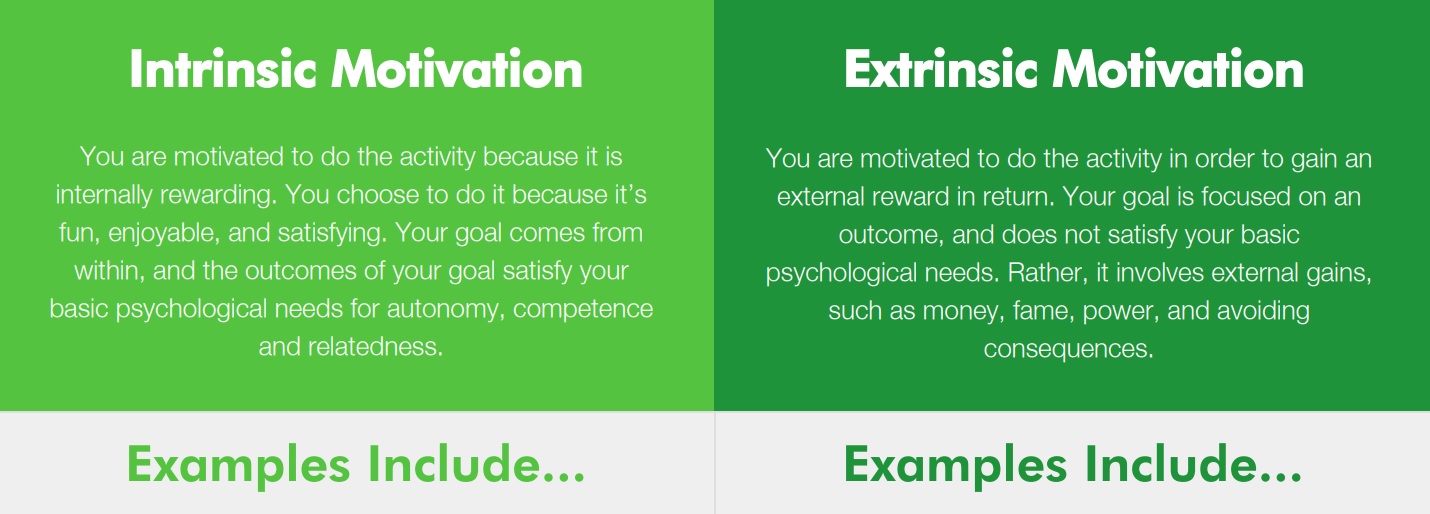Have you ever seen a sloth try to do a backflip? That’s about as effective as trying to learn something without motivation. Whether you’re trying to master a new skill or simply trying to stay awake during a lecture, motivation plays a crucial role in the learning process. So buckle up, grab some coffee (or a defibrillator, if you’re really struggling), and let’s dive into the wild world of motivation and its impact on learning.
Key factors influencing motivation in learning
Motivation in learning can be influenced by a variety of factors, some of which may surprise you. Here are a few key factors that can make or break your desire to hit the books:
1. Peer Pressure: We all know that peer pressure can make you do some crazy things, like jumping off a bridge or eating a whole pizza in one sitting. But did you know it can also affect your motivation to learn? If your friends are slacking off and not taking their studies seriously, it can be tempting to follow suit. On the other hand, if your peers are dedicated and hardworking, their motivation can rub off on you like a contagious case of the study bug.
2. Procrastination: Ahh, the sweet siren song of procrastination. Why study now when you can binge-watch an entire season of your favorite show on Netflix? While putting off your work may give you short-term pleasure, it can seriously dent your motivation in the long run. The longer you procrastinate, the more daunting your workload can become, leading to a vicious cycle of avoidance and self-blame that can be hard to break.
3. Teacher Influence: Your teachers play a critical role in shaping your motivation to learn. A passionate and engaging instructor can ignite a spark in you that makes you excited to dive into your schoolwork. On the other hand, a boring or disinterested teacher can suck the life out of even the most dedicated student. Finding an educator who truly cares about their subject and their students can make a world of difference in your motivation levels.
The role of intrinsic motivation in academic performance
When it comes to academic performance, intrinsic motivation plays a key role in determining success. Instead of relying on external rewards or punishments, intrinsic motivation comes from within and drives students to excel in their studies.
So, how does intrinsic motivation impact academic performance? Well, for starters, it makes studying more enjoyable and fulfilling. When students are motivated by a genuine interest in the subject matter, they are more likely to put in the effort and time needed to succeed.
Furthermore, intrinsic motivation fosters a sense of autonomy and independence in students. They are not just studying to please others or meet external expectations, but rather to satisfy their own curiosity and achieve personal goals.
Overall, cultivating intrinsic motivation in students is essential for fostering a love of learning and improving academic performance. And hey, a little internal drive never hurt anyone!

The impact of extrinsic motivators on student engagement
Extrinsic motivators, such as rewards, prizes, and punishments, can have a significant impact on student engagement. While these external factors can sometimes be seen as bribes or treats for participating in activities, they can also serve as powerful tools to keep students engaged in their academic pursuits.
One of the main ways extrinsic motivators can influence student engagement is by providing a sense of accomplishment and recognition for their efforts. Whether it’s a gold star sticker or a gift card to their favorite store, these rewards can give students that extra push to stay focused and motivated to complete tasks.
On the flip side, punishments can also be effective in motivating students to engage with their schoolwork. Whether it’s a detention for not turning in homework on time or losing out on a fun class activity, students are more likely to stay on track when faced with consequences for their actions.
In conclusion, while extrinsic motivators may not be the only way to encourage student engagement, they can certainly play a valuable role in keeping students motivated and on task throughout their academic journey. So next time you’re struggling to get your students excited about a lesson, remember that sometimes a little bribery can go a long way!

Strategies for enhancing motivation in the classroom
Are your students lacking motivation in the classroom? Fear not, for we have some creative and humorous strategies to get them fired up and ready to learn!
- Implement a reward system that will have even the most apathetic student participating eagerly. Have fun with it – offer up silly prizes like a “Golden Pencil” or a “Homework Hero” badge.
- Infuse some friendly competition into your lessons. Challenge your students to beat their own personal bests or go head-to-head with their classmates in a quiz or game.
- Get those bodies moving! Incorporate movement breaks into your lessons to keep energy levels up and minds engaged. Whether it’s a quick game of Simon Says or a dance party, physical activity can do wonders for motivation.
Finally, don’t underestimate the power of positivity. Shower your students with praise and encouragement, and watch as their motivation levels soar. Remember, a little laughter and fun in the classroom can go a long way!

The relationship between motivation and learning outcomes
Ever wonder why some people seem to excel in their studies while others struggle to stay motivated? Well, it turns out that there is a strong connection between motivation and learning outcomes. Here are a few ways in which motivation can impact how well you learn:
- Motivation drives behavior: When you are motivated to learn, you are more likely to put in the time and effort needed to master a subject. This can lead to better study habits and ultimately better results.
- Motivation boosts focus: Have you ever tried to study when you were feeling unmotivated? It’s like trying to swim through a sea of distractions. When you are motivated, you are more likely to stay focused on the task at hand, leading to better retention of information.
- Motivation enhances creativity: Learning requires you to think critically and problem solve. When you are motivated, you are more likely to approach challenges with a creative mindset, leading to a deeper understanding of the material.
So, if you find yourself struggling to stay motivated in your studies, remember that your level of motivation can have a direct impact on how well you learn. Stay focused, stay motivated, and watch your learning outcomes soar!
Cultural influences on students’ motivation to learn
Have you ever stopped to consider how cultural influences shape students’ motivation to learn? It’s like having a hidden puppeteer pulling the strings behind the scenes, except instead of a puppet, it’s your desire to ace that exam.
From the pressure to succeed placed on students by their families to the expectations set by their communities, culture plays a significant role in determining how motivated students are to learn. It’s like being caught in a spider web of traditions and norms that dictate your every move. No pressure, right?
But wait, there’s more! Cultural influences can also impact the subjects students are interested in and the career paths they choose to pursue. It’s like being handed a menu with only one item listed – your destiny. Will you choose the dish called Doctor or opt for the Chef special?
So next time you find yourself wondering why you’re so motivated to learn about a certain topic or pursue a specific career, take a moment to consider the cultural influences at play. Who knows, you might just unlock the secret to your inner drive – or at the very least, have a good laugh at the absurdity of it all.
FAQs
Why is motivation important for learning?
Well, motivation is like the fuel that powers your learning engine. Without it, you’re just a rusty old jalopy stuck on the side of the educational highway.
How does motivation affect learning outcomes?
Think of motivation as your academic fairy godmother – it sprinkles a little magic dust on your brain, making you more likely to persevere through tough challenges and reach your learning goals.
What are some strategies for staying motivated while learning?
Imagine motivation is a delicious pizza, and you are the hungry student ready to devour it. Now, think of setting small, achievable goals, rewarding yourself along the way, and surrounding yourself with positive, supportive people as the tasty toppings that make that motivation pizza even more irresistible.
Can a lack of motivation hinder learning progress?
Oh, absolutely! Imagine trying to climb a mountain with no motivation – you’d probably give up halfway and roll down into a pit of despair. Or worse, become a hermit living off of frozen pizza and reruns of reality TV shows. Don’t be that person!
How can educators help cultivate motivation in their students?
Teachers, listen up! Just like a gardener tends to their plants, sprinkle a little encouragement here, a pinch of praise there, and a whole lot of enthusiasm everywhere. Your students will blossom into motivated learning machines before you know it!
—
Keep Calm and Stay Motivated!
Now that you know just how important motivation is for learning, make sure to keep those spirits high! Remember, learning is a journey, not a race. So, take a deep breath, grab a cup of coffee (or tea, we don’t judge), and tackle those assignments with a smile on your face. Who knows, you might just surprise yourself with how much you can achieve when you’re feeling motivated! So go out there and conquer the world, one study session at a time. And remember, the only way to eat an elephant is one bite at a time. So keep going, you’ve got this!






